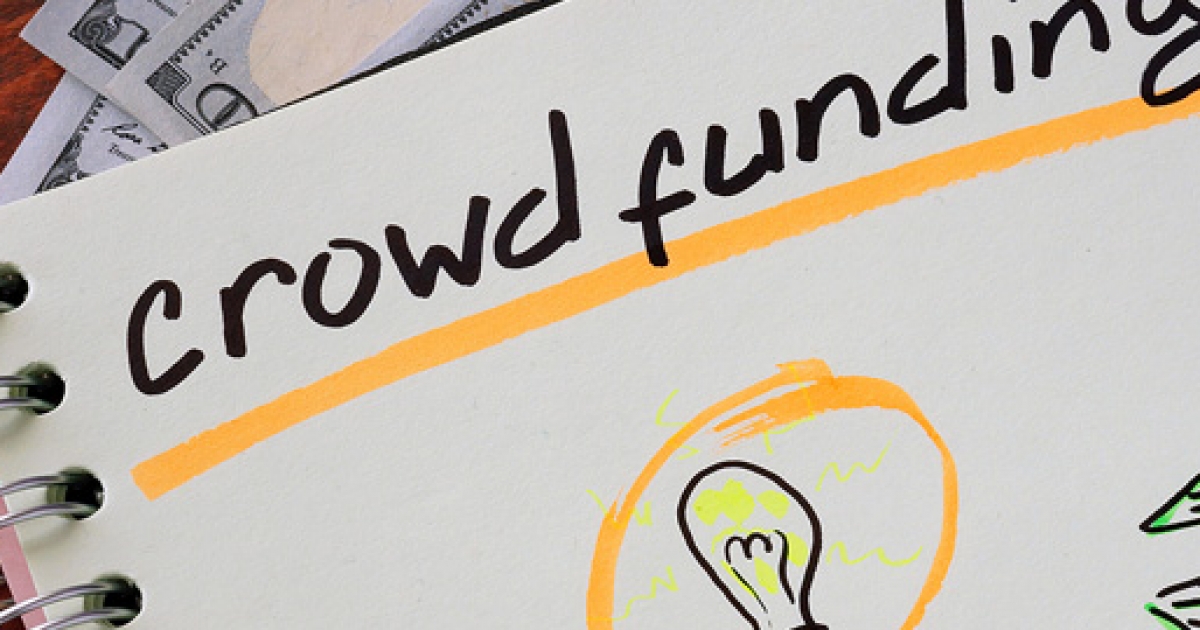How to Choose the right Crowdfunding Platform

09 Feb 2016
Since I started writing articles on crowdfunding, I often get asked the same question.
"Which is the best crowdfunder to use?"
The most important thing I make clear to people, is that that they aren't crowdfunders. You are the crowdfunder. You are looking for crowdfunding platforms. Crowdfunding platforms are where you host your crowdfunding project.
It is also a question that is pretty subjective, as everyone is different & willing to forsake some attributes in order to have something else. So the best approach I recommend is to set up a spreadsheet, and compare the various crowdfunding platforms. This should be as important as the preliminary research that you do on your project prior to launching it. Like your actual project, it can determine if your campaign will be successful or not. A broken or inadequate crowdfunding platform can cost you pledges when backers walk away in frustration or dismay.
There are three parts to this question.
1. Which is the better company to deal with?
2. Which has the better platform?
3. What kind of crowdfunding do you want to do?
Which is the better company to deal with?
When looking for the best crowdfunding platform provider to launch your project with, you need to know that they can provide what you need to achieve your objective. While most of the crowdfunding exercise is your responsibility, you need to feel comfortable that the crowdfunding platform provider you select, has the tools to help you along the way.
Some of the things to look for on the crowdfunding platform provider's website are:
- Tool Tips - Tips on how to best set up your project to launch.
- Online/Downloadable & Video 'How to' Guides - How to get the best out of your project online, such as images, videos, project description,social media, etc.
- Charts & Planning Downloads - Step by step guides, and monthly planners to guide your progress.
- Active Blog - Blogs on project case studies by staff & project owners. Tips & ideas on how to run a successful project. Upcoming events.
- FAQ's - Their FAQ's should be able to answer most technical questions you have, and should include where to find answers to coaching questions too.
- Forum - Where project owners can interact with each other, and the crowdfunding platform provider staff can advise.
- Offline/Online Workshops - Training sessions on how best to run your project, discussions of areas you may be failing in.
- Webinars - Discussing the evolution of crowdfunding and news events & coaching to help your project become a success.
- Downloadable Workbooks - To guide project owners through the crowdfunding process, providing benchmarks & goals for project owners to strive for.
- Downloadable PDF's - With advice and coaching & in-depth advice on specific types of projects.
- Coaching - Coaching which is available to all projects, not just to those with high targets, or have fee structured coaching.
- Active Social Media - Where they not only promote themselves or high target projects, but promote all projects. Provide dedicated streams or tagged tips & tricks specifically for project owners. Showing project owners how to distribute their content around all social networks.
- Events Diaries - Details on upcoming workshops, webinars, and campaigns.
- Project Dashboard - To log statistics & analytics of your project & live project performance. Downloadable CSV's.
- Emails - That follow your progress at key points of your projects duration.
- Staff Profiles - So you know who you are talking to, and what kind of experience they have. Always good to have familiarity with someone who is helping you on an important project.
- Success Stories - Successful projects and what they achieved, what makes a great project to inspire others.
- Marketing Material - Downloadable marketing material that you can use to push your project online & offline (posters, brochure,calling cards)
- Links & References - Lists of people, contacts, communities, media, etc., that project owners can use to contact or help with marketing.
Things to watch out for:
- Communication - Do they have a phone number on their website? Try ringing them, if they aren't willing to talk with you now, then it isn't likely they will want to speak to you later. Some crowdfunding platform provider's put a project target value on their time. It is better to find this out in the beginning.
- Support - Make sure they have a Customer Support section. Send a ticket in asking a question. If you don't receive an answer back within 24 hours, make a record of this.
- Transparency - The saying goes "If they sound too good to be true, then ,maybe they are". Those with the most to cover up about their operations, are usually those that boast about themselves the most. If they are busy telling the world how great they are, that is time they should be spending telling the world how great their project owners are. Beware the crowdfunding platform provider megalomaniac. "We are the best!"
- Fees - Do they show the fees they charge & the payment gateway fees?
- Feedback - Do they offer somewhere to give feedback, and do they acknowledge your feedback?
Which has the better platform?
A platform is the software that crowdfunding platform provider's use to host your project on. There are many types of platforms used by crowdfunding platform providers. Some are well designed & well maintained. Others are cheap constructions thrown together to achieve a purpose, and are held together with band-aids.
But there are some tests you can perform to find out if that particular platform will work for you.
- Pledging - Make a pledge on an existing project. Is the pledging process easy? Did you find any problems with it? Problems that you have with another project, are problems your backers could have when pledging on your project. So this is an important test to try. If you have problems, contact Customer Support. How Customer Support deal with you, is how they will deal with your backers. Try this process on different devices if you can, because not everyone uses a PC - some use Macs. Not everyone uses a desktop, most use mobile devices.
- 3rd Party Links - Try following links in from social media sites and widgets on websites. Did you arrive in the project, and were you able to pledge from it? If you have problems, contact Customer Support. How Customer Support deal with you, is how they will deal with your backers.
- Logging in - Create your membership/user account. Start creating your project & then log out. Can you log back in to your project again? If you have problems, contact Customer Support. How long they take to get back to you, is possibly how long it could take for you to log into your account should you have problems in the future.
- Categories & Search - Is it easy to find other projects on the site? Are they categorized and does Search work?
- Creating Your Project - Try setting up your project. Does the project description field give you the ability to format your project page? How your project is presented is important & can encourage people to pledge on your project. Does it provide the ability to add extra images? Does it provide the ability to have headings? If the project description field doesn't make you proud to share your project, then try another platform.
- Images - Are images easy to upload & re-size? Visuals are very important when creating your project.
- Videos - Was it easy to upload your video? Did it provide tips on the recommended video size?
- Payment Gateways - Does it provide enough payment gateways, and how easy were these to set up? Did it show the gateway fees? Have they advised that you have to have your account verified before you will receive funds at the end of your project.
- Sharing - Does it provide functions to share your project using emails lists & social media?
- Checklist - At the end of creating your project, did it provide you with a checklist, so you know you have everything filled out?
- What Next? - At the end of the project, did it provide reference as to what to do next?
- Project Information - At the end of the project did it provide you with all the relevant information in relation to your project?
- Going Live - Were you made aware if your project was Live or not?
Suggestion:
Don't make your project Live straight away, let it sit there for a couple of months while you are planning your project. Take note of how many emails your are sent asking why your project isn't Live. 'None' will indicate a lack of support. 'Too many' will indicate they have very spammy practices & could drive you nuts with emails during & after the project is completed.
What kind of crowdfunding do you want to do?
While there are different models of crowdfunding, there are 4 principal types that are widely used. When looking for a crowdfunding platform provider, you need to find a platform that will suit your needs. Most should have it on their from page, or provide easy navigation to the services they offer.
- Reward Based Crowdfunding - Investors receive a tangible item or service in return for their funds
- Equity Based Crowdfunding - Investors receive a stake in the company
- Lending Based Crowdfunding - Investors are repaid for their investment over a period of time
- Donation Based Crowdfunding - Contributions go towards a charitable cause
If you still find the whole process a bit daunting, we can provide consultancy services, or set up your whole project for you! So get get in touch!
Web Producer, Creative Director, Content Creator & Distributor at clearFusion Digital, & specializes in helping businesses plan & grow their website.




